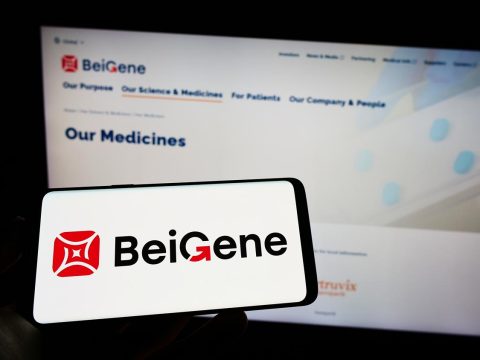Advertisment
University of Louisville Division of Infectious Diseases Group B Streptococcus infections Study results announced by Pfizer.
Pfizer Inc. announced detailed results of the first study to show the burden of both invasive and non-invasive Group B Streptococcus infections (GBS) among hospitalized adults in the United States. The study, published in The Journal of Infectious Diseases , estimated that 188,570 GBS-related hospitalizations (95% confidence interval [CI]: 175,290–202,710) and 5,660 deaths (95% CI: 5,260–6,080) occur each year among US adults ages 18 or older when including both invasive and non-invasive GBS infections. Previous studies describing the burden of GBS infection in adults have primarily focused on invasive disease because existing surveillance systems rely on blood culture collection. In the new study, however, non-invasive disease was 3–4 times more common than invasive disease, suggesting that adult GBS burden is considerably greater than previously recognized. The most prevalent sites of GBS infection were the skin and soft tissue (39%), urinary tract (23%), and bone and joint (16%). Overall, 79% of infections were non-invasive and most infections (60%) identified GBS as the only pathogen.
Rates of GBS-associated hospitalization were significantly higher in adults 65 years and older, African Americans, and people with underlying chronic medical conditions such as obesity, diabetes, chronic renal disease, and coronary artery disease. The finding that obesity and diabetes put patients at increased risk for GBS-associated hospitalization is especially noteworthy given that recent Centers for Disease Control and Prevention (CDC) reports have highlighted that the prevalence of obesity among U.S. adults is 42%, and that as many as 34 million American adults (roughly 13% of all U.S. adults) have diabetes, with another 88 million having pre-diabetes (roughly 35% of all U.S. adults), a condition that if not treated often leads to type 2 diabetes within five years.
The study was conducted as a collaboration between Pfizer and the University of Louisville Division of Infectious Diseases. The University of Louisville was recently designated as the first Center of Excellence for epidemiological research of vaccine-preventable diseases by Pfizer Vaccines. This collaboration between the university and Pfizer is aimed at determining the human health burden of important infectious diseases and potential vaccine effectiveness.
Additional findings from the study included the following : 73 in every 100,000 adults were hospitalized with GBS infection each year (95% CI: 68–78), and this annual incidence reached 100 per 100,000 in adults ages 65 or older (95% CI: 85–117). 3% of adults hospitalized with GBS infection died. For every invasive GBS infection, 3.7 non-invasive infections occurred. Annual rates of GBS infection in African American adults were 2.6 (95% CI: 2.2–3.1) times higher than in white adults– 157 per 100,000 vs. 60 per 100,000. Compared with the general population, annual GBS infection rates were 2 to 6 times higher among adults with underlying chronic medical conditions, including: Chronic renal disease – 421 per 100,000 .Diabetes mellitus – 409 per 100,000. Coronary artery disease – 259 per 100,000. History of stroke – 171 per 100,000. Obesity – 129 per 100,000. Chronic obstructive pulmonary disorder (COPD) – 98 per 100,000. Current smokers – 98 per 100,000.
See- “Burden of Adults Hospitalized With Group B Streptococcal Infection “-John M McLaughlin, Paula Peyrani, Stephen Furmanek, Farid L Khan, Angela Quinn, Luis Jodar, Julio Ramirez, David L Swerdlow. The Journal of Infectious Diseases, jiaa110, https://doi.org/10.1093/infdis/jiaa110 . Published: 19 March 2020 .





